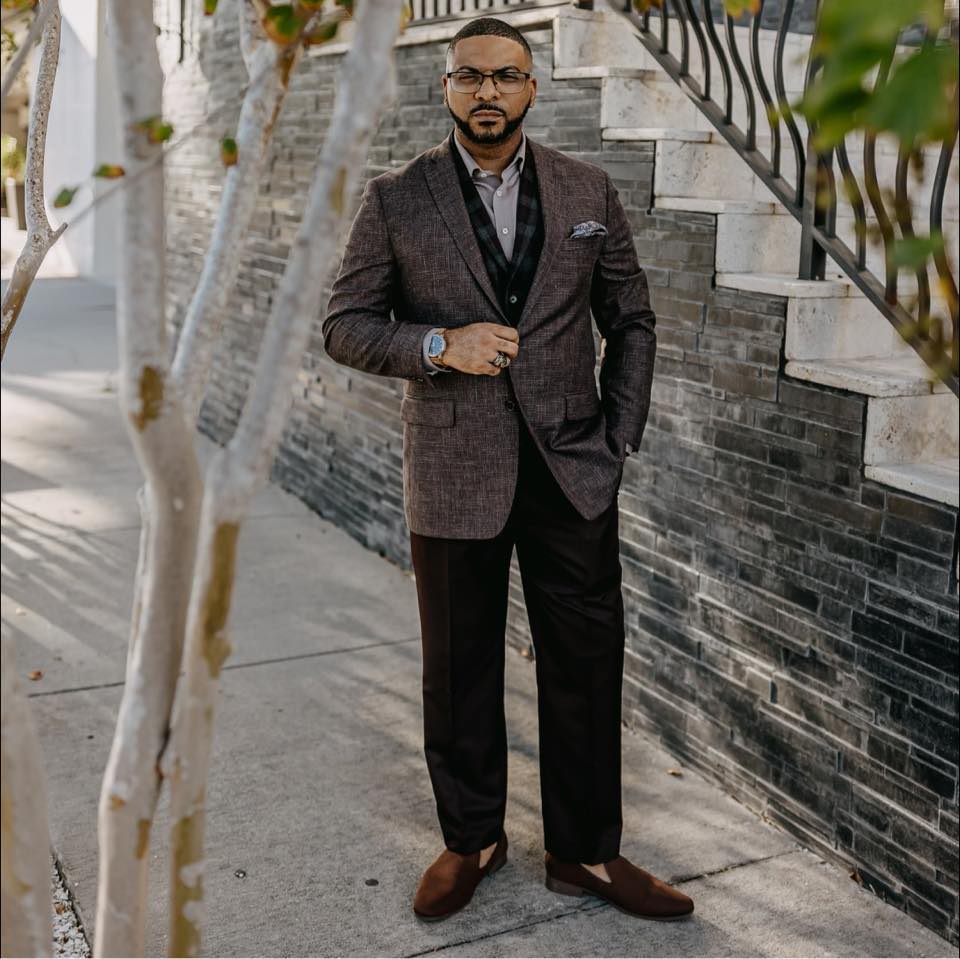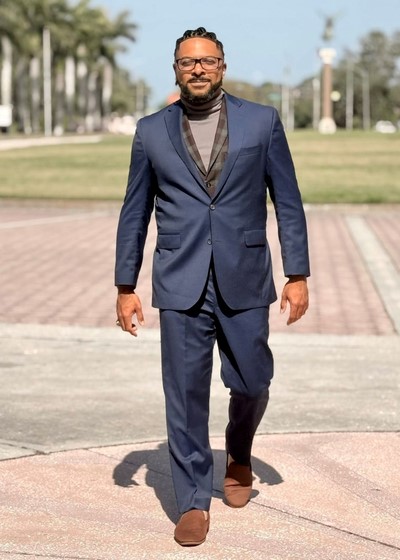Alright – so today we’ve got the honor of introducing you to Dexter T. Wycoff II. We think you’ll enjoy our conversation, we’ve shared it below.
Dexter T., thanks for joining us, excited to have you contributing your stories and insights. What was one of the most important lessons you learned in school? Why did that lesson stick with you?
One of the most impactful lessons I have learned was while I was attending Bethune-Cookman University, a small historically Black University (HBU) in Daytona Beach. I decided to attend Bethune-Cookman for two main reasons. Firstly, my parents had attended HBUs and shared how impactful their experience had been. Secondly, growing up, I was drawn to Bethune-Cookman’s marching band and the school colors. Every year, my parents would take me to the big rivalry game in Orlando, and I just loved the way the marching band showed up; it really made a lasting impact on me.
So, on my first day of freshman year, sitting in orientation with a million thoughts going through my head, I remember the university president stating that the school’s mission was “Enter to learn and depart to serve.” She went on to explain that we would all pick a career that might be inspired by what our parents told us we’d be good at, or the career assessments that we’d taken in school. Certainly, some economic factors would be in play. But the most important thing we should use to make this career decision is a mission. How will we utilize the knowledge, talents, and skills we acquire during our time in higher education to make the world a better place?
This notion that any career could have the ability to make the world a better place struck me because up until this point, I had thought that the people who make the world a better place were teachers, preachers, philanthropists, folks who dedicated their lives to others while living a lifestyle that others may view as limiting. But the more time I spent considering the words I heard that day in orientation, the more they started to impact the decisions I made about my career and life trajectory.
I began to set standards for myself. I knew that there was a level of optionality that I wanted. My dad was in the military, so there had been strict parameters around where we could live and travel. My mom had been entrepreneurial, and I loved the idea that she could be herself every day and make money. I began to realize that I wanted a career where I could create a lifestyle for myself and a family while spending time with my community, helping others, and making an impact, and ultimately still be me.
Ultimately, that speech from my freshman orientation defined how I made decisions about how and where I worked. So, as I progressed in my working years, if I felt like some of my standards were being compromised, I knew it was time to move on. If a company’s mission aligned with the standards I had set for myself, I knew it was worth exploring further, and that is how I ended up at Northwestern Mutual. The work that our financial advisors do for our clients aligns with my values. I’m creating the career and lifestyle that I envisioned while positively impacting the people around me.
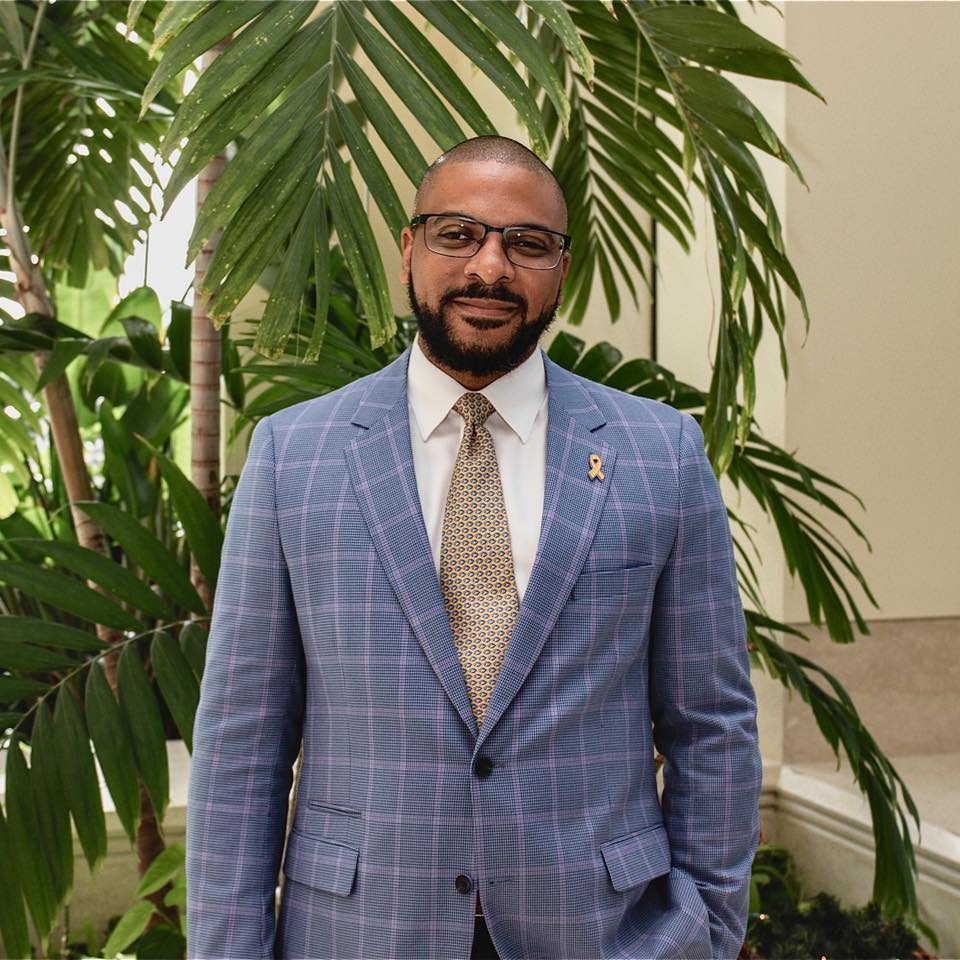
As always, we appreciate you sharing your insights and we’ve got a few more questions for you, but before we get to all of that can you take a minute to introduce yourself and give our readers some of your back background and context?
My Mission as Chief Growth and Development Director with Northwestern Mutual: Nobility | Intentional Relationships | Service | Dynamic Perspectives
With over a decade of experience in the financial industry, my mission is to expand the reach of financial freedom by employing both investment strategies and risk management solutions. I focus on the unique financial needs of emerging professionals, entrepreneurs, and families, and together with my team, take a long-term approach. We cultivate intentional relationships with every client to craft a personalized financial plan tailored to their specific goals. During life’s monumental milestones, we stand alongside our clients to celebrate and enhance their financial futures.
Dedicated to education, leadership, and activism, I am committed to fostering stronger financial security within our community. I believe deeply in the transformative power of generational change by assisting others in protecting their families and navigating the retirement landscape. Beyond my role as a Northwestern Mutual financial advisor, I actively engage with and support various organizations that resonate with my personal values.
I am passionate about helping people feel better about their money, which leads to increased confidence and security. For over 160 years, Northwestern Mutual has empowered individuals to achieve the financial flexibility needed to live more and worry less.
As a mutual company, Northwestern Mutual prioritizes its clients over Wall Street, emphasizing a long-term approach rather than chasing fads or taking undue risks for short-term gains. This philosophy has served its clients (and mine) through economic ups and downs, including wars, recessions, and the recent pandemic.
I am proud to be part of a company committed to the long-haul, where clients come before profit.
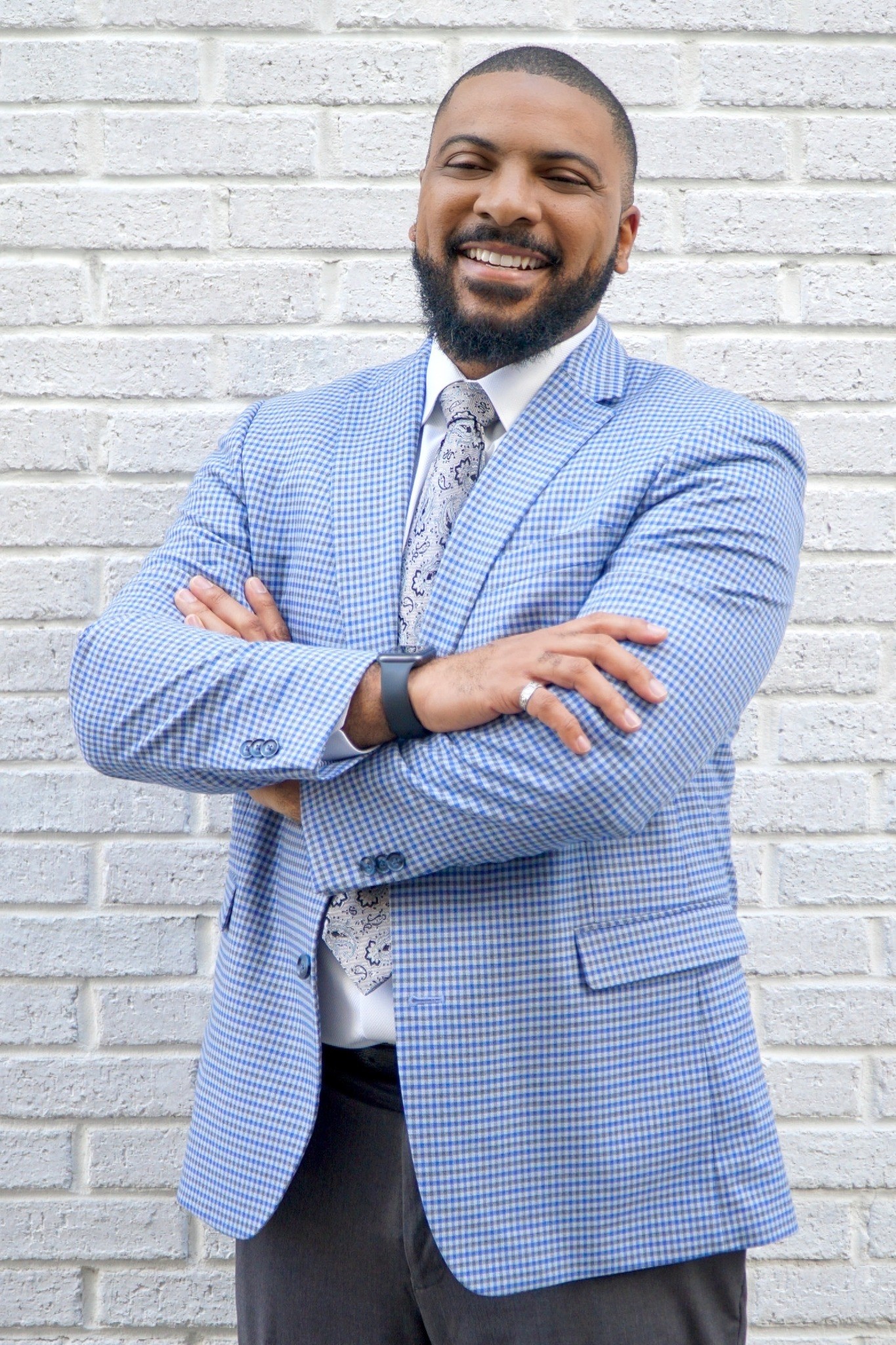
Any stories or insights that might help us understand how you’ve built such a strong reputation?
Building my reputation in the market has been deeply intertwined with my beliefs about entrepreneurship. At its core, entrepreneurship is about identifying a problem that needs solving and feeling uniquely positioned to address it. This perspective resonates with examples like Uber, where the founder realized a need for a more efficient way to hail cabs using mobile technology, a realization sparked by a personal experience standing in the rain on the streets of London.
In my journey as a financial advisor, I was guided by the belief that everyone deserves to retire and that no generation should have to start over due to unforeseen circumstances. I recognized that the difference between those who have planned for the future and those who haven’t is often just knowledge and experience. By offering expertise and leveraging the experience of my colleagues and me, I aimed to bridge this gap.
Specializing in serving minorities and people of color was central to building my reputation. I focused on understanding and addressing the cultural differences that impact how these communities view money. Many people from my demographic haven’t seen someone retire, and there’s a shift needed from viewing money as “this is how I survive, to this is how I thrive.” Engaging in these conversations, addressing cultural traumas, and encouraging a positive outlook on financial growth were crucial in establishing trust.
My approach was a volume game, leveraging the comprehensive product suite from Northwestern Mutual, a $300 billion firm, to serve a broader range of individuals, regardless of income level. By doing so, I provided access to financial services that many wouldn’t otherwise experience, emphasizing service over targeting large, high-paying clients.
Despite not always being the most profitable path, my commitment to underserved communities has helped build my reputation as someone who genuinely serves. With the power of a major company behind me, I’ve been able to make significant impacts on the lives of my clients, my family, and the community as a whole. This focus on service, backed by a robust infrastructure, has been instrumental in establishing my reputation and achieving meaningful results.
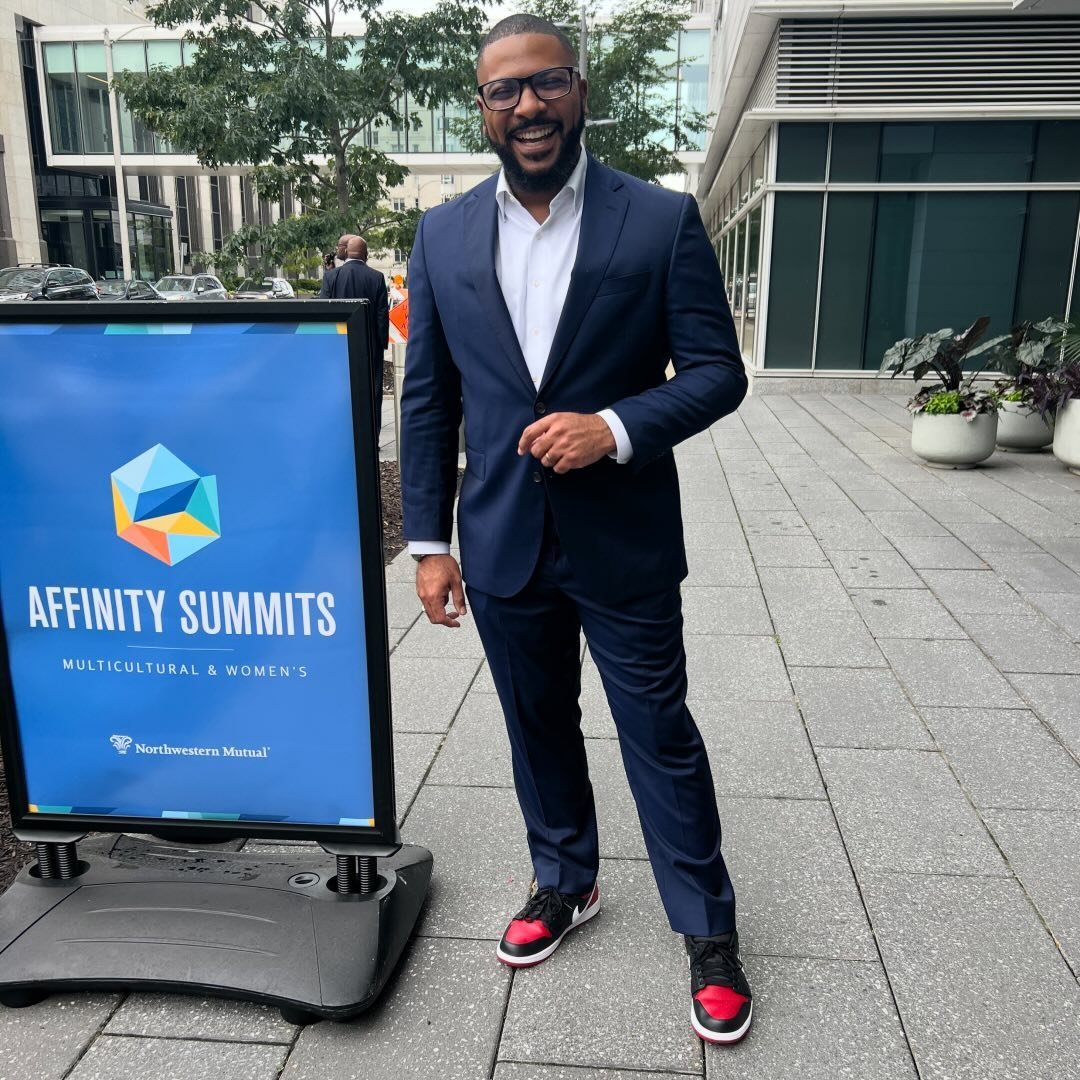
What’s worked well for you in terms of a source for new clients?
Throughout my career, I’ve found that the best source of new clients has been favorable introductions from existing clients. Early on, I tried cold calling for about an hour, and quickly realized it wasn’t for me. There are two main reasons for this. First, cold calling is an inefficient way to meet people. Think about it, when was the last time you were genuinely excited about a call from someone you didn’t know? Even if the product or service offered is valuable, the lack of a prior connection makes it difficult to engage meaningfully.
The second reason is more strategic. Our business model thrives on favorable introductions, making it more predictable and providing a better experience for potential clients. Unlike cold calling, these introductions come with a level of trust and context that enhances the relationship right from the start.
My existing clients have been invaluable in this regard. I now have hundreds of clients who have had the chance to sit down and engage in vision planning with me, which is something that rarely happens anymore. While many of these clients have some background in financial planning, putting a personalized framework around their finances is a unique experience I offer. As the saying goes, “You can’t see your own picture when you’re in the frame,” and having someone external to provide perspective can be incredibly valuable.
Ultimately, it’s the experience, more than just the products and services, that drives compelling referrals and introductions. I believe this principle applies universally, whether you’re opening a restaurant, launching a new AI startup, or establishing a law firm. The best place to start is with people who already know, like, and respect you, even if they don’t directly need your product or service. For example, if you’re selling chicken sandwiches and your friends are vegan, they still want to see you succeed and are often happy to introduce you to potential customers.
Leveraging existing relationships to grow your business is not only effective for starting out but also vital for ongoing success. It fosters a network of support and trust that can be far more powerful than any cold outreach tactic.
Contact Info:
- Website: https://www.northwesternmutual.com/financial/advisor/dexter-wyckoff/
- Linkedin: https://www.linkedin.com/in/dexterwyckoffnm/
